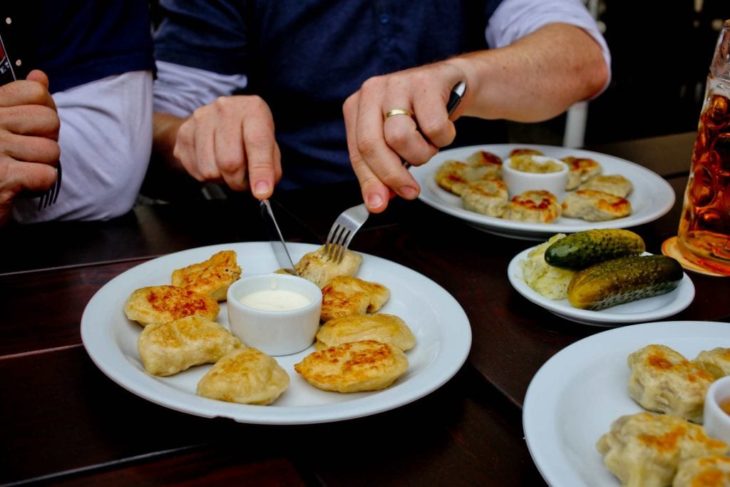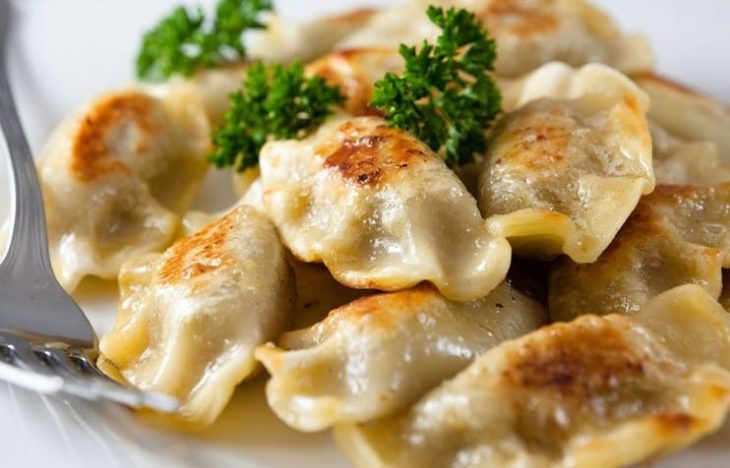One of the best things to do during a trip around Europe is to taste the cuisine of the different countries and regions as you pass through them.
You wouldn’t be the first person to consider leaving the UK and living in Europe to have all those beautifully ripe tomatoes drenched in olive oil, mozzarella, golden saganaki, and deliciously flaky croissants.
However, why not take the prize pickings and add them to your own diet back home for a healthier lifestyle?

Source: TripSavvy
Go East
The main ingredients of the Eastern European diet consist of eggs, commonly used in pastries and doughs, and dairy products, in the form of cheese and yogurt.
Grains such as millet, buckwheat, wheat, barley, and rye are used to make kashas and various types of bread, while vegetables are kept in cold storage, but also pickled too.
You will also find that poultry, birds, and fish like herring, carp, pike and salmon are made parts of this diet, along with mutton, pork, beef and veal and fruits such as figs, dates, pomegranates, raspberries, cherries, plums and pears for liqueurs and desserts.
Eastern European food tends to be high in fat, sodium, and cholesterol though, so it’s important to make wise choices.
Opting for lean meats, fish that is in omega-3 and low-fat yogurts is the way to go to get the best out of Eastern European food. In the UK and unable to travel? You can sample a modern twist on East European food in London at the Russian Restaurant Babel House
Source: tripsavvy.comHigh-Fat French?
Although seen as being high in fat and generally not the healthiest on the continent, there are some real health benefits to a French diet. They are particularly good at portion control, for instance. When you eat smaller quantities of rich food, you are better able to manage and prevent cravings from developing and can manage your weight better.
There’s also the fact that French people use olive oil, cheese, and butter too. There is some thought that suggests these are actually healthier than opting for those thickening agents or low-fat options.
It is recommended, when taking on a French diet, that you eat more whole grains, lean meat, and fresh vegetables and reduce the amount of processed foods you consume. A glass of wine is also recommended with your dinner and almonds of fruit for snacks.

Source: calvertjournal.com
Naturally Nordic
There is an emphasis on fruit, especially berries, cabbage, root vegetables and whole grains such as oats and rye in diets eaten in Denmark and Sweden. Only a small amount of meat is consumed. While fish is normally consumed at least two or three times throughout the course of a week and canola plant oil is used. You will also find that in the Nordic and Scandinavian countries there’s a stronger focus on ethically sourced, local and wild-caught food.
Although we may be far from those countries, we can benefit from similar boosts to our health by ensuring that at least one portion of fruit we have in a day features berries. These are high in antioxidants, which can reduce the risk of cardiovascular disease and cancer, and are low in sugar. Rye bread should be considered too as it increases our levels of magnesium, iron, zinc and Vitamin B.

Source: dailyexcelsior.com
The Mediterranean Mixture
The diet of people living in and along the Mediterranean has long been connected with better health in general as well as more specifically, an increase in life expectancy and improved cardiovascular health.
Greeks and Italians are known for eating only a moderate amount of lean meat, small amounts of legumes, high-quality whole grains, along with fats such as avocado, olive oil and nuts and plenty of fresh fruit and veg.
Although you may not need to justify it, a small glass of red wine will also give you the benefit of its antioxidative properties.
At Deakin University, there has been research that has shown this kind of diet can help treat people who are suffering from moderate to very severe depression.
You can adapt to this diet at home by giving yourself half a plate full of non-starchy vegetables a fist-full, for men and half a fistful for women, of legumes or whole grains and a palm-sized portion of pork, chicken or fish.
Though you can opt for red meat twice a week. Drizzle on plenty of extra virgin olive oil and you have one healthy plate full of Mediterranean food.
